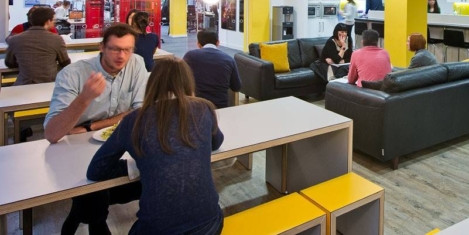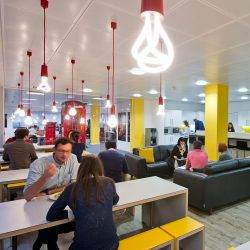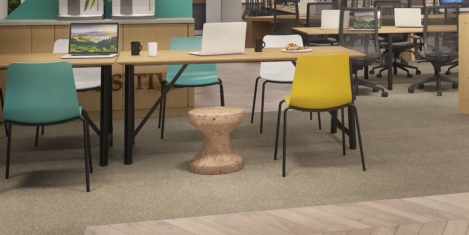To provide the best experiences, we use technologies like cookies to store and/or access device information. Consenting to these technologies will allow us to process data such as browsing behaviour or unique IDs on this site. Not consenting or withdrawing consent, may adversely affect certain features and functions.
The technical storage or access is strictly necessary for the legitimate purpose of enabling the use of a specific service explicitly requested by the subscriber or user, or for the sole purpose of carrying out the transmission of a communication over an electronic communications network.
The technical storage or access is necessary for the legitimate purpose of storing preferences that are not requested by the subscriber or user.
The technical storage or access that is used exclusively for statistical purposes.
The technical storage or access that is used exclusively for anonymous statistical purposes. Without a subpoena, voluntary compliance on the part of your Internet Service Provider, or additional records from a third party, information stored or retrieved for this purpose alone cannot usually be used to identify you.
The technical storage or access is required to create user profiles to send advertising, or to track the user on a website or across several websites for similar marketing purposes.
 Should we be afraid of artificial intelligence? For me, this is a simple question with an even simpler, two letter answer: no. But not everyone agrees – many people, including the late physicist Stephen Hawking, have raised concerns that the rise of powerful AI systems could spell the end for humanity. Clearly, your view on whether AI will take over the world will depend on whether you think it can develop intelligent behaviour surpassing that of humans – something referred to as “super intelligence”.
Should we be afraid of artificial intelligence? For me, this is a simple question with an even simpler, two letter answer: no. But not everyone agrees – many people, including the late physicist Stephen Hawking, have raised concerns that the rise of powerful AI systems could spell the end for humanity. Clearly, your view on whether AI will take over the world will depend on whether you think it can develop intelligent behaviour surpassing that of humans – something referred to as “super intelligence”.








 Almost two thirds (64 percent) of SME employees believe that companies should make a positive contribution to society, while half of all UK workers (50 percent) would be discouraged from working for an organisation with no interest in community or ethical goals. According to The Future Workforce from Unum and independent researcher The Future Laboratory this emphasis on a company’s ethical credentials comes in the wake of a movement towards greater awareness of global issues, which has led to demands for more transparency in how organisations do business and less tolerance of unethical corporate behaviour. As a result, an ethical employer can be an important factor when it comes to deciding whether to join or stay with an organisation –In addition, The Future Workforce report found that just under a third (30 percent) of UK workers believe that companies who are not participating in any civic or ethical contributions should be fined.
Almost two thirds (64 percent) of SME employees believe that companies should make a positive contribution to society, while half of all UK workers (50 percent) would be discouraged from working for an organisation with no interest in community or ethical goals. According to The Future Workforce from Unum and independent researcher The Future Laboratory this emphasis on a company’s ethical credentials comes in the wake of a movement towards greater awareness of global issues, which has led to demands for more transparency in how organisations do business and less tolerance of unethical corporate behaviour. As a result, an ethical employer can be an important factor when it comes to deciding whether to join or stay with an organisation –In addition, The Future Workforce report found that just under a third (30 percent) of UK workers believe that companies who are not participating in any civic or ethical contributions should be fined.
























September 28, 2018
The horrors and harmonies of workplace hierarchy
by Monica Parker • Comment, Technology, Workplace design
(more…)